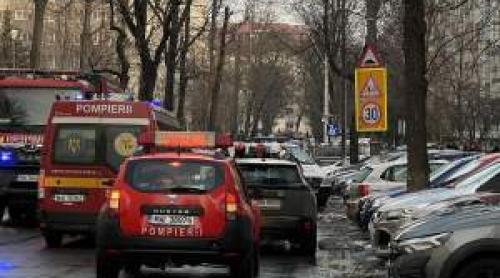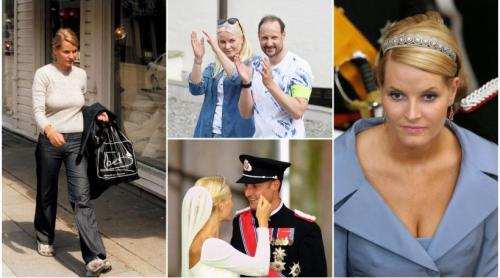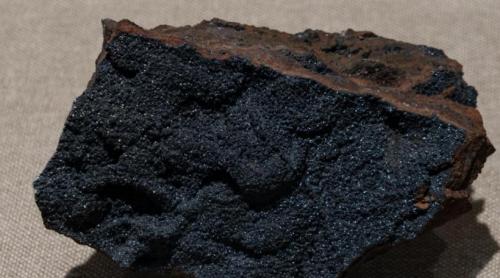
POLITICS - October 27th 2004
Starting from tomorrow, for 30 days, Romania enters the electoral campaign for the parliamentary and presidential elections which are to happen on 28 November. The electoral campaign stops on 27 November, at 7 oâclock.
By ANIELA NINE, CARMEN VINTILA

|
|
|
MANIFESTATIONS. During all this time, the candidates, the political parties and alliances as well as the citizens have the right of showing their opinions freely and without any discrimination. The ways to do that are: meetings, gatherings, marches, as well as the written and audio-video press. But organizing such manifestations can happen only according to the law. During the electoral campaign the candidates are offered corresponding spaces to meet with the electors, spaces that can be placed at the City Hall headquarters, in culture house etc., places for which they have to pay the maintenance costs. For the meetings with the electors, spaces from schools and universities can be used but only outside the education schedule.
PURPOSE. According to the law, the electoral campaign through public and private audio-video programmes, must respect the following general interests:
RESTRICTIONS. Electoral posting in other places than the ones set is allowed only with the ownersâ, administratorsâ or holdersâ consent. The law also restricts to one the number of posters in such a place for a candidate.
PUNISHMENTS. Posting the electoral propaganda means in other places than the ones the law refers to as being valid is sentenced with a fine from three to five million lei. In the same time, continuing the electoral propaganda after the electoral campaign finishes is sentenced with a fine between seven and ten million lei.
POLLS. In the case of showing polls having electoral contents, they have to be accompanied by the following information:
PRESIDENCY. The same terms regarding the electoral campaign organization are applied in the presidential elections as well. A special agreement in the Presidentâs election law is the one according to which the present President can take part in the presidential campaign of the party or political alliance that proposed him or that supports its candidacy.
PRESIDENTIAL RACE
The first one registering his candidacy for the supreme state function at the Central Electoral Bureau (CEB) has been the SDP (Social Democratic Party) president, Adrian Nastase, who submitted 2 million signatures. He has been followed by the J.T. (Justice and Truth)Alliance candidate, Traian Basescu, who submitted 1.5 million signatures, and by GRP (Great Romania Party) president, Corneliu Vadim Tudor, this also being the order in which they will appear on the voting papers. Vadim stated that he submitted at CEB 330,000 signatures. Independent candidate Gheorghe Dinu also brought to CEB 297,000 signatures, and the NGP (New Generation Party) president, George Becali, 298,000 signatures. DUHR (Democratic Union of the Hungarians in Romania) president, Marko Bela, also submitted its candidacy for the presidential elections, forwarding at CEB lists with the signatures from more than 268,000 supporters. Marian Milut, the PA (Popular Action) candidate for Presidency registered his candidacy for the function of chief of the state at CEB, too. He brought lists with 370,000 signatures. The dead-line for submitting the candidacies for Parliament as well as for the Presidency is the 29th of October, at 24:00 hours.
PUBLIC ORDER MEASURES
For the safe organizing and development of the elections, the Ministry of Administration and Internal Affairs elaborated a plan of measures that will be adapted by each unit commander, according to the problems in each district. This way, during the meetings and electoral gatherings, the public order will be insured by the police, the riot police and other officers. Also, the public order forces will take care of the delegatesâ of the political parties, and the patrolling routes of the mixed crews will also include the electoral posting places, in order to prevent destruction or deterioration of the information materials.
ELECTORAL BRIBE
The candidates will be able to offer during the electoral campaign electoral propaganda materials, the law reading that, in this context, goods with symbolic value having signs of the parties donât enter in the electoral bribe category. As a conclusion, the CEB members decided that the following items donât enter in the electoral bribe category: shirts, scarves, foulards, and other similar objects having signs of the parties or signs or pictures of the candidates and that have more of a symbolic value (badges, pennants, flags). According to CEB, by goods that cannot be offered in the electoral campaign one can understand those items having significant economical value, as well as utility goods, alimentary or not alimentary. According to the parliamentary elections Law, "promising, offering or giving money, goods or any other benefits with the purpose of getting the elector to vote or not to vote a certain list of candidates or a certain candidate, as well as receiving them by the elector with the same purpose, are law breaking acts and are sentenced with prison from six months to five years".
Translation: SORIN BALAN
Citește pe Antena3.ro

















